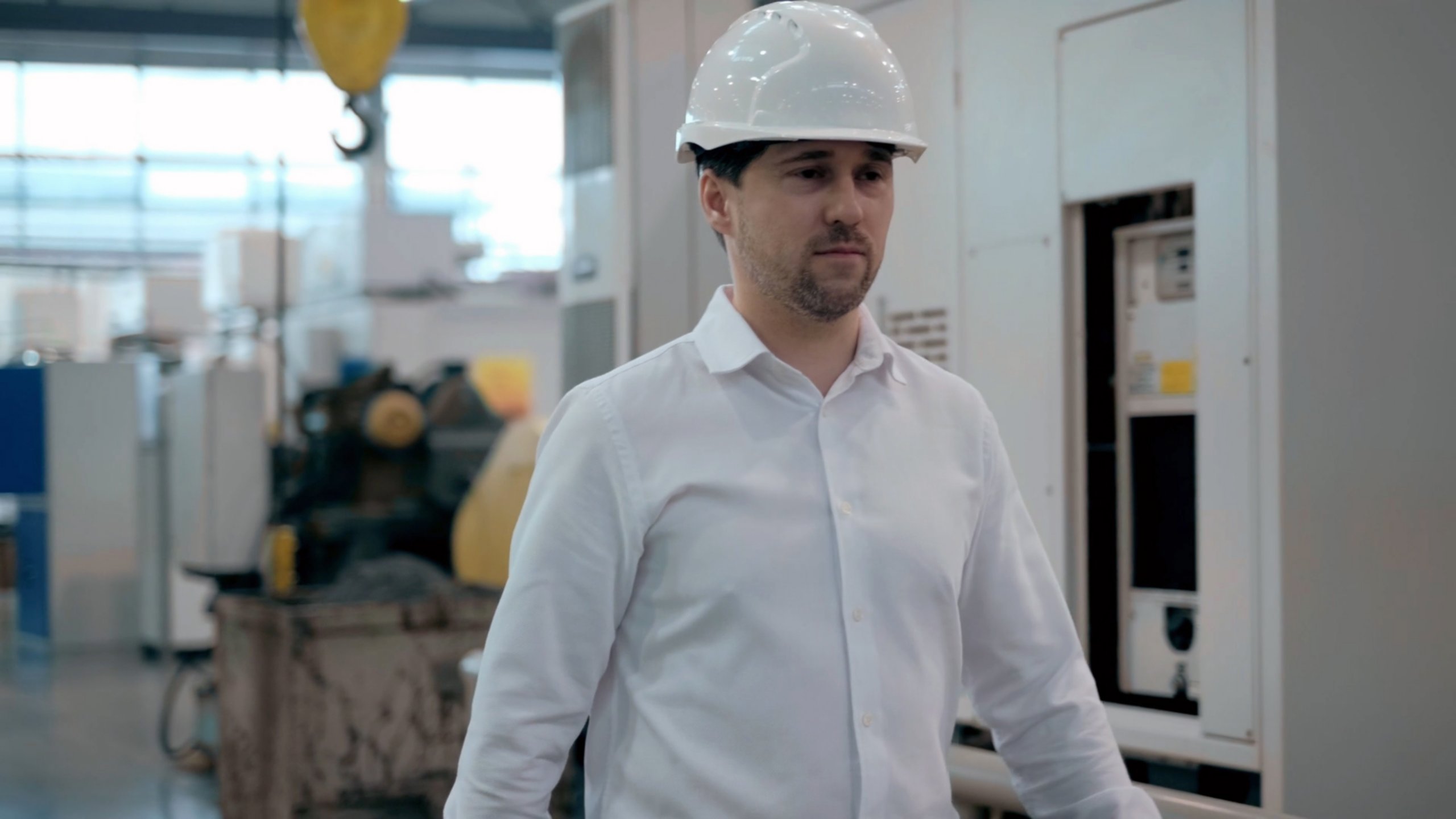Energy management, monitoring and compliance reporting can be quite challenging due to the increasing costs of water, air, gas, electricity and steam (WAGES), the evolving regulatory landscape and the need for accuracy in consumption insight. With sustainability initiatives taking center stage globally, it’s time to take a close look at how industry is addressing critical challenges with available resources. Let’s delve into some of the key challenges and potential solutions:
Poor Data Quality and Availability
Obtaining good quality primary data across value chains can be difficult, especially for smaller businesses. Without data availability, quality and contextualization, many companies may become stalled in their sustainability goals.
Solution: Leveraging data collection technology can improve data quality and availability while reducing resource requirements. Industrial DataOps has become a key technology for collecting, contextualizing and accessing data for an energy management strategy.
Evolving and Inconsistent Disclosure Standards
Keeping up with rapidly evolving standards requires expert knowledge and interpretation can still vary. Regional requirements can quickly change. You need an energy management system that can provide up-to-date information, rapidly and easily.
Solution: Providing access to energy data for all stakeholders to enable collaboration, reporting and analysis will help you stay on top of any requirements from local, state and global standards.
Stakeholder Engagement
Obtaining emissions data involves cooperation from stakeholders across the value chain, which can be challenging due to confidentiality and reputation concerns. Having a highly secure data platform that is scalable, with user-level access control, enables your energy applications in the cloud or on-prem at the edge.
Solution: Again, Industrial DataOps with the ability to host any vendor’s applications in a highly secure environment with accessible data is key to success. Applications that can scale are critical rather than do-it-yourself solutions that cannot be maintained.
Resource Constraints
Many companies, especially small and medium-sized enterprises, struggle with processing the large volume of data involved in emissions measurement and reporting, energy consumption metrics and analytics. This may prevent them from being empowered to make significant changes.
Solution: Using data collection technology that is user friendly can reduce resource demands. Look for applications that have easy to understand and clear dashboards. Operators do not have to be data scientists when implementing an advanced system.
Limited Integration into Business Operations
Custom energy management solutions including emissions reporting are often not fully integrated into existing business operations, slowing down data collection efforts.
Solution: Achieving better integration of energy and emissions monitoring into business processes can streamline the decarbonization process. DataOps platforms are excellent at fully integrating into your existing systems without the need for deep-code programming. These applications, like FactoryTalk® Energy Manager™, can be deployed in only a few days and maintained in a software as a service (SaaS) environment.
Sustainability as a Competitive Advantage
Adopting sustainability practices and robust energy management systems can serve as a competitive advantage, enhancing brand reputation and opening new market opportunities. Companies that proactively address sustainability aren’t just complying with regulations—they’re positioning themselves as market leaders, attracting eco-conscious consumers and partners.
“At Conperio, we understand that navigating the complex landscape of sustainability and energy management requires both cutting-edge technology and industry expertise. By leveraging advanced platforms like FactoryTalk Energy Manager, we enable our clients to achieve real-time visibility and control over their energy consumption, driving both efficiency and sustainability across their operations,” said Ron Harrison, President and Owner of Conperio Technology Solutions (a Rockwell Automation PartnerNetwork™ member). The company is a system integrator.
Future Trends in Sustainability
As the sustainability landscape continues to evolve, several emerging trends are set to shape the future of energy management and emissions reduction:
- Artificial Intelligence (AI) and Machine Learning (ML): AI and ML are transforming how companies monitor, analyze and optimize energy consumption. These technologies can predict energy usage patterns, identify inefficiencies and suggest corrective actions in real time. By integrating AI-powered analytics with energy management systems, businesses can make more informed decisions, reduce waste and enhance operational efficiency.
- Internet of Things (IoT) Integration: The IoT is expanding rapidly, with an increasing number of connected devices providing real-time data on energy usage across entire operations. This connectivity allows for more precise monitoring and control, enabling businesses to optimize their energy consumption at a granular level. The use of IoT devices also facilitates predictive maintenance, reducing downtime and confirming that equipment operates at peak efficiency.
- Decentralized Energy Systems: Decentralized energy systems, such as microgrids and distributed energy resources (DERs), are gaining traction as businesses seek greater energy independence and resilience. These systems allow companies to generate and manage their own energy locally, reducing reliance on the grid and lowering emissions. By integrating renewable energy sources like solar and wind, decentralized systems can further enhance sustainability efforts.
- Circular Economy Principles: The shift towards a circular economy—where resources are reused, refurbished and recycled—will play a crucial role in sustainability. Companies are increasingly adopting circular economy practices to minimize waste and reduce the environmental impact of their operations. This trend will drive innovation in product design, materials sourcing and supply chain management, all aimed at reducing the carbon footprint.
- Enhanced Regulatory Frameworks: As governments and international bodies tighten regulations around emissions and sustainability reporting, businesses will need to stay ahead of compliance requirements. Future regulatory frameworks are expected to become more stringent, with a focus on transparency and accountability. Companies that proactively adopt sustainable practices and invest in compliance technology will be better positioned to navigate these changes.
- Corporate Social Responsibility (CSR) and Investor Pressure: Stakeholders, including investors, customers and employees, are increasingly demanding that companies demonstrate a commitment to sustainability. This pressure is driving organizations to integrate corporate social responsibility (CSR) initiatives into their core business strategies. Companies that can showcase tangible progress in sustainability will not only meet these expectations but also attract investment and enhance their market position.
- Digital Twins in Sustainability: Digital twins—virtual replicas of physical assets—are being used to model and optimize energy usage in real time. By simulating different scenarios, businesses can identify the most efficient energy practices and predict the impact of changes before implementing them in the real world. This approach reduces risks and supports continuous improvement in sustainability efforts.
In addition to these challenges, highly accurate measurements of NOx, CO and O2 for emissions reduction are also difficult to monitor, verify and report. However, Rockwell Automation offers software, Software CEM®, a Continuous Emission Monitoring System (CEMS), that helps measure and report regulated emissions to deliver compliance with environmental directives, without the need for costly hardware based CEMS. Combined with our Industrial DataOps platform, FactoryTalk® DataMosaix™ and FactoryTalk Energy Manager applications, other software solutions and automated systems are also available to enhance energy management, emissions monitoring and reporting to achieve net zero.
These trends represent the cutting edge of sustainability in energy management. By staying informed and adapting to these advancements, businesses can meet current sustainability goals, take advantage of opportunities and help protect their operations against emerging risks.
Meet these challenges with collaboration, technological advancements and a commitment to sustainability. Take the next step in achieving your sustainability goals. Sign up for our webinar, Empowering Sustainable Manufacturing: Unveiling the Power of FactoryTalk Energy Manager with Conperio and schedule a personalized consultation with our experts. Together, we can help you turn sustainability challenges into opportunities for growth and innovation.
Learn more about FactoryTalk Energy Manager here.
For more information about Conperio, visit our partner locator.
Find out more about the Rockwell Automation PartnerNetwork program here.





